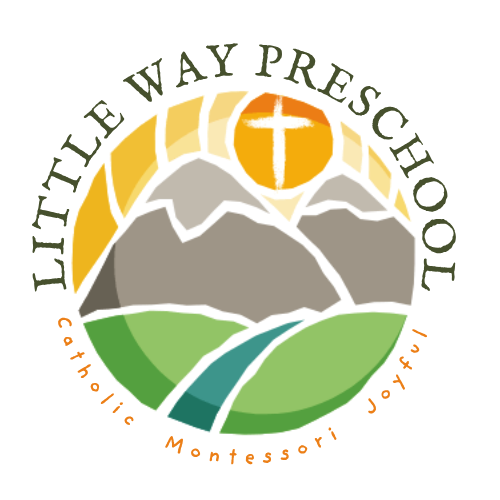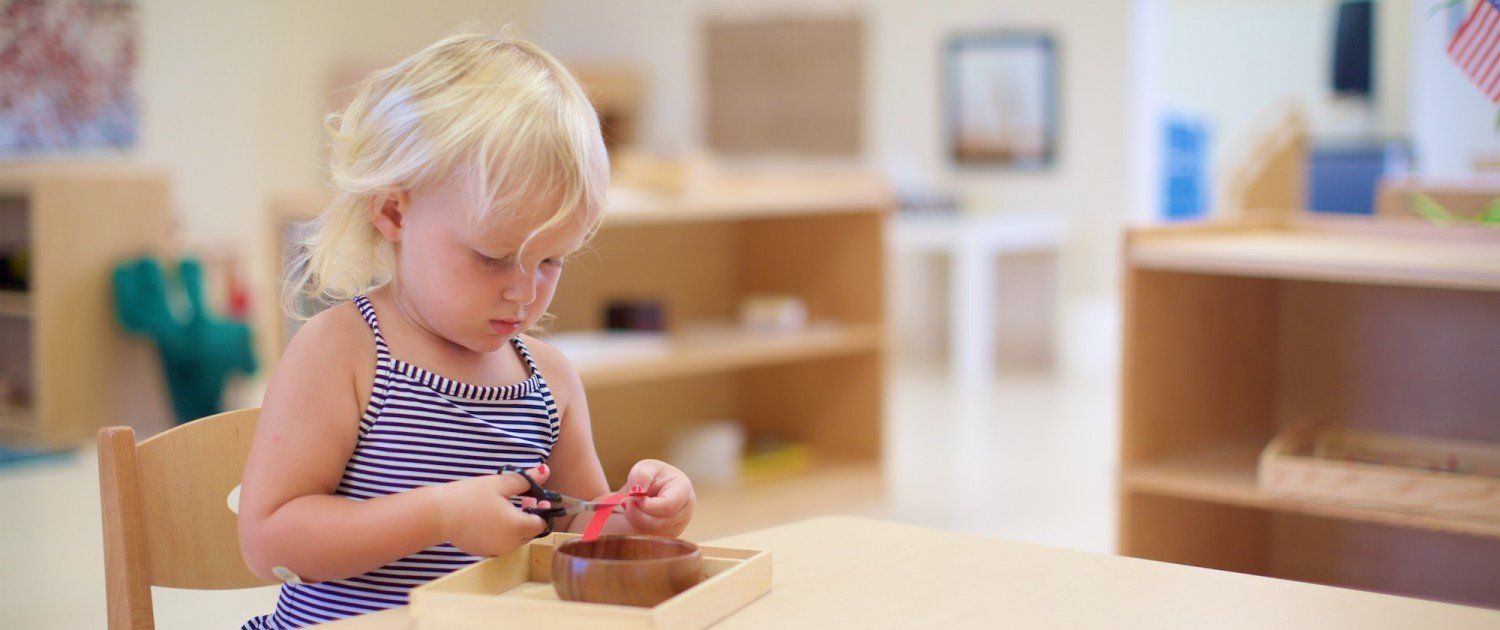To be curious, self-directed, and engaged; to be compassionate, collaborative, and think critically; to be adaptable and problem solve—these so called “soft skills” are now seen as most necessary for our rapidly changing world. Montessori education focuses on all of these with the same amount of importance as academic skills.
CLASSES
Our classes are carefully crafted to meet the developmental needs of the each and every child.
We offer two multi-age group classes from ages 2.5-5 years old.
Our educators and support staff are devoted and passionate about the important work of early childhood education.
It Starts with Understanding the Nature of Children
Children come into this world wired to learn. They are naturally curious with an eagerness to explore, discover and figure things out for themselves. The Montessori classroom—based on years of scientific research—is a supportive environment rich with materials designed for children, cultivating their natural curiosity and joy of discovery with the guidance and encouragement of trained adults.
Real Life Happens Here
Philosopher and educator John Dewey said, “Education is not preparation for life; education is life itself.” From the very beginning of their Montessori experience, children learn to take care of their own needs (preparing snack, putting on their own shoes and jackets) and environment (sweeping up, watering plants). In doing so, they develop a level of physical and intellectual independence not often seen in young children. This daily experience of being trusted with real responsibility for meaningful tasks results in children with authentically earned self-confidence.
Cooperation and Collaboration are the Culture
The youngest children start with lessons in “Grace and Courtesy”—lessons that teach them how to respect themselves, others, their classroom and the environment. As the children grow older, they learn to respect and understand the connectedness between all living and non-living things, leading to the adolescent’s profound awareness of the complex web of human existence.
The Gift of Uninterrupted Time
Each child is free to choose her own work. A teacher will carefully observe—but not interrupt—a child’s work as long as it’s purposeful. When children are given the opportunity to engage in meaningful, interesting, self-directed work, they achieve a high level of focused concentration. Scientists refer to this as a “flow” state of prolonged, energized work that produces both calm satisfaction and a profound joy in learning.
Emotional Intelligence is Built-in
Children stay with the same teacher for three years, building lasting relationships with the teachers and friendships with children of different ages. The multi-age classroom offers a dynamic social setting where children learn from each other, master skills, and become facilitators of learning for their classmates, creating experiences that build emotional intelligence not possible in traditional single-age classrooms.
No Rows of Desks
Anyone who has been around children knows: children need to move. Children in our classrooms can choose to work at tables, on the floor, or outside if their work takes them there, eliminating the fidgeting and boredom that often comes with being forced to sit still at a desk for extended periods of time. The youngest children develop their motor skills in the Montessori classroom by working with materials that focus on skills such as grasping, pouring, stacking, carrying and balancing. Appropriate physical skills are integrated into the curriculum at all levels because our goal is not only intellectual competence, but human competence.
Freedom with Responsibility
Montessori classrooms strike a balance of developmentally appropriate freedom with responsibility—you cannot successfully have one without the other. As a child grows, so do his choices and responsibilities, providing him with the necessary framework to succeed in ever-larger spheres. In their early elementary years children are planning out their activities for a week, and by their later elementary years they are conducting month-long independent research. By middle school students are running their own business. Is it any wonder that so many entrepreneurs credit their Montessori foundations with their success?
No Gold Stars
Techniques that focus on external rewards like grades or gold stars tend to take the joy out of learning by reducing it to a means to an end, rather than a journey of discovery. Programs like "No Child Left Behind" and "Race to the Top" forces conventional education to focus on tests and grades. It’s not that our students never experience a test, but our teachers are not encumbered by “teaching to the test.” We don’t measure competencies that way. Because students work independently and one-on-one with the teachers, assessment happens all day, everyday, through careful observation of each individual child.
Time is the Variable. Learning is the Constant
The teachers present lessons when the child is ready for them, not necessarily when a national curriculum dictates that she’s ready. This allows each child to learn when she shows readiness and eagerness for a particular subject, which is when learning happens most effortlessly and deeply. Children move uninterrupted through the curriculum at their own pace, often exceeding the state's education requirements. This removes much of the frustration and boredom that can hinder positive learning experiences in conventional education, where time is the constant and, unfortunately, learning can be the variable.
From Concrete to Abstract
Developmental psychologists now confirm: an integrated, active, hands-on approach is the most engaging and effective way for children to develop skill and understanding. In contrast to classrooms where learning comes from texts, worksheets, and lectures, a Montessori classroom features materials specifically designed to make abstract concepts real. For example, a very young child works with strings of beads to sensorially experience “five” or “ten,” bending the strings into a square or cube—developing his mathematical mind and a foundation for increasingly abstract concepts later. Maria Montessori said “Never give more to the mind than you give to the hand,” and we’ve seen that knowledge built this way is not easily forgotten.
Grit
Perseverance. Resilience. “Stick-to-it-tiveness.” Call it what you will, Montessori kids have it and researchers agree that kids who have it get along further in life. We understand that sometimes the most valuable thing that a teacher (or parent) can do to help a child is to back off a bit. To let children face some adversity on their own, to fall down and not be helped back up. We allow children to make mistakes, to learn from mistakes and hence, to learn what it takes to succeed. It only makes sense that children who learn to try and try again develop the crucial ability to overcome setbacks and in the process, develop true strength of character.
We Ask the Big Questions
The world isn’t divided neatly into subjects, and neither are young minds. Starting in first grade, Montessori students are presented with “Great Lessons”—formal stories about the universe, time, humans, communication, and numbers. In addition to stoking the flames of curiosity and forming a context for exploration, children become adept at drawing inferences between subjects, critical thinking, and understanding the big picture—skills that are highly valued in today’s rapidly changing world.
Education for Life
We view education as helping each child reach his full potential. Montessori isn’t just a philosophy, nor is it based on a national common curriculum. Montessori is an education methodology based on the natural development of the human being and has proven successful for more than a century in tens of thousands of schools around the world. We teach the way children learn. We focus on all of it. That is the difference. Montessori is more than just school. It is education for life.

